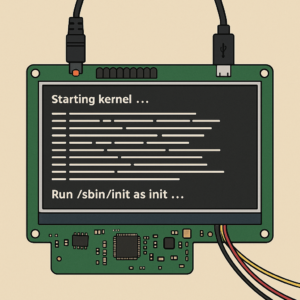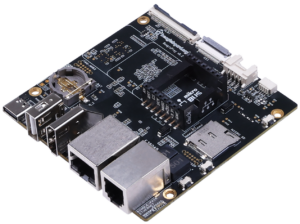 Bootlin training courses have long been recognized for their quality and effectiveness. Before the COVID era, we offered in-person sessions either on-site at customer locations for larger groups or as public sessions at our facilities, bringing together engineers from multiple companies. However, with the onset of the pandemic, we transitioned exclusively to online training. Since then, we have resumed in-person sessions at customer locations, but public sessions have yet to make a comeback—until now.
Bootlin training courses have long been recognized for their quality and effectiveness. Before the COVID era, we offered in-person sessions either on-site at customer locations for larger groups or as public sessions at our facilities, bringing together engineers from multiple companies. However, with the onset of the pandemic, we transitioned exclusively to online training. Since then, we have resumed in-person sessions at customer locations, but public sessions have yet to make a comeback—until now.
We’re excited to announce the return of our in-person public training sessions! The first session will focus on Linux kernel driver development and is scheduled for June 16-20, 2025, in Lyon, France. This course will be conducted by none other than Bootlin engineer and Linux kernel maintainer Grégory Clement.
For participants who prefer an in-person learning experience, this session provides a valuable opportunity for direct interaction with our trainer and fellow attendees. It’s an excellent alternative to online sessions, fostering deeper engagement and collaboration.
Seats are available at the standard rate of 2100 EUR per participant, with a discounted rate of 2000 EUR per participant under certain conditions.
Beyond this Linux kernel driver development in-person public session, we have plans to also open in-person public sessions for our Embedded Linux system development, Yocto Project/OpenEmbedded system development and Debugging, tracing, profiling and performance analysis with Linux training courses. Do not hesitate to contact us if you’re interested. Your feedback will help us gauge interest and schedule these sessions accordingly.
 Linux 6.15 has been released last Sunday, and we as usual encourage our readers to look at the LWN summaries of the merge window (part 1, part 2) for a good summary. CNX-Software also has a summary more oriented towards hardware support for ARM and RISC-V platforms.
Linux 6.15 has been released last Sunday, and we as usual encourage our readers to look at the LWN summaries of the merge window (part 1, part 2) for a good summary. CNX-Software also has a summary more oriented towards hardware support for ARM and RISC-V platforms. 


